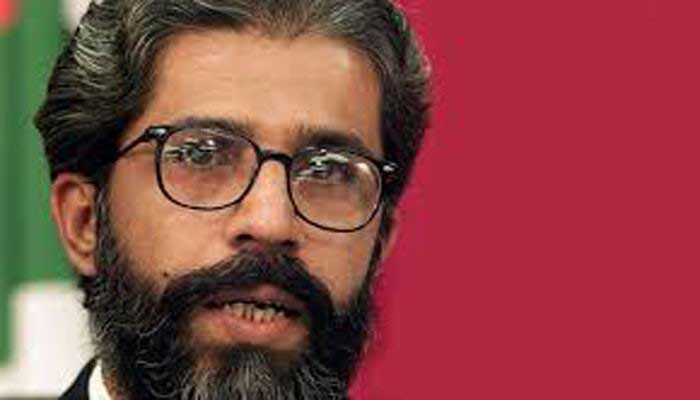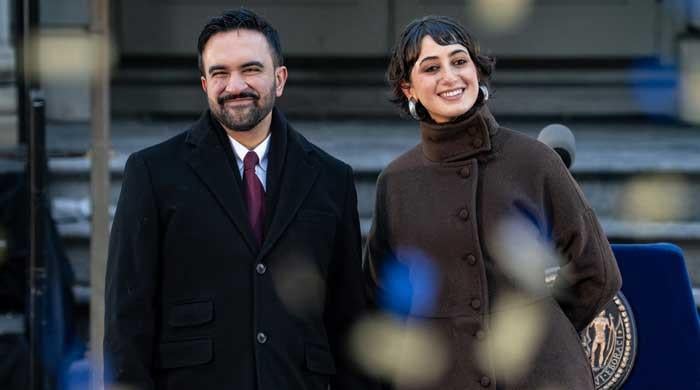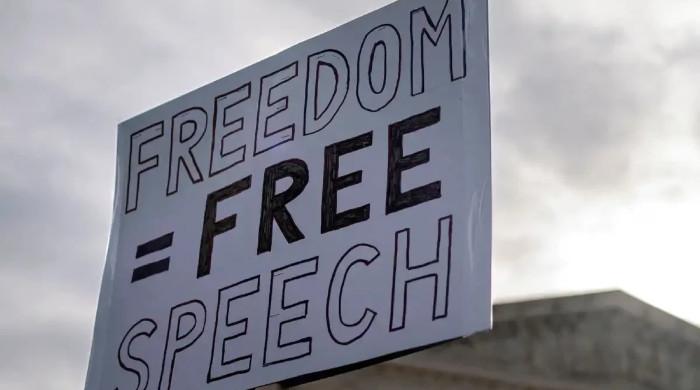The story of Dr Imran Farooq
The doctor had tried, in his own way, to do some 'surgical work' in the party he helped form, but failed, and later fell victim to the system himself
June 23, 2020

Dr Imran Farooq’s life and politics remain a mystery, as much as the man himself. The events that led to his cold-blooded murder are also hard to pin down.
Last week, three men accused of murdering Farooq, the founding secretary-general of the united Muttahida Qaumi Movement (MQM), have been found guilty and sent to prison for life. Separately, Altaf Hussain, the self-exiled founder of the political party, has been declared an “absconder” by an anti-terrorism court, in a conspiracy to kill Farooq, his colleague.
These developments are monumental, but they bring us no closer to finding out the truth. Why was the 50-year-old politician stabbed to death outside his home in London?
Farooq, similar to other party leaders of the 1980s in Pakistan, belonged to the medical profession. The doctor had tried, in his own way, to do some “surgical work” in the party he helped form, but failed, and later fell victim to the system himself.
Later, when General (retd) Pervez Musharraf staged a coup in Pakistan, Dr Farooq surfaced in London. Interestingly, Musharraf’s tenure of nine years from 1999 to 2008, were some of the best years for the MQM in politics.
When the doctor rejoined the political party, Atlaf Hussain made a public announcement: “The convener is back.” But the patch up did not last. Farooq developed differences with the founder once again over the chain of command. Since the issues could not be resolved, Farooq was forced to back out of the MQM.
Thereon began speculations that Imran Farooq was gearing up to form a new breakaway faction. But senior party leaders I spoke to, including those closely associated with the doctor, both in Pakistan and London, reject this notion. They insist he never intended to revolt against the founder.
“He was a man of the party,” a leader told me, on the condition of anonymity, “He was also a very organized person, otherwise no other MQM leader could have remained underground for so long.” The leaders added that Farooq was committed to the party and always respected Hussain. “But when it came to organizational matters, he usually took a very strong position, even if it was to the founder's disliking.”
The difference between Farooq and Hussain emerged over three major issues, the leader went on. One, was the chain of command. The doctor was not happy over the frequent changes in the organizational setup. Decisions he made were later overturned by Hussain, without taking him into confidence. Two, there was an increase in complaints of corruption within the party and the misuse of funds. Three, both colleagues started losing confidence in each other and at one point Farooq told Hussain that he would not mind being replaced.
“The infighting led to the suspension of his membership several times,” said a senior leader of the MQM, “Soon wall chalking also emerged against Farooq in Pakistan.”
Weeks before his murder, Hussain tried to convince Farooq to return as the convener. Politicians from the MQM were sent to convince the doctor, but he politely refused. Farooq was quoted as saying that he was completely committed to the party still he would not accept convenorship again.
“One day he even packed up his belongings and handed over the keys of the office,” the senior leader added.
Farooq’s cold-blooded murder sent shockwaves in the party and jolted it to an extent that it slowly began to fragment.
A weakness in the organizational set-up was first noticed in the 2013 election, which led to an angry and very frustrated speech by the MQM founder. In the polls, while the MQM retained its constituency seats, the Pakistan Tehreek-e-Insaf (PTI) emerged as a potent challenger and threat to it for votes.
“For the first time even the families of the MQM cadre voted for the PTI,” a local MQM leader told me, “The cracks were now deep within the party.”
In the following years, the MQM officially split. Senior leaders Anis Kaimkhani, Syed Mustafa Kamal, Anees Advocate, Raza Haroon and Dr. Sagheer Ahmed silently quit only to remerge in 2016 and form their own political party.
Then disaster struck again. Hussain made a provocative speech from London, and raised an anti-Pakistan slogan. Thereafter he was banned from television screens in Pakistan and his party’s headquarters was sealed shut.
The split further widened, as two new parties, MQM London and MQM-Pakistan appeared.
“The MQM leadership became a victim of its own politics,” an Urdu-speaking intellectual told me, asking not to be named, who at one time admired the party, “A victim of the politics they adopted in the post-1988 victory.”
When the probe into the killing of Imran Farooq began, the British and Pakistani authorities had their own reasons for initial non-cooperation, revealed an investigator associated with the investigation. “The British police believed that Pakistan should hand over the suspects to them, as the incident occurred in London,” the investigator told me, “While the Pakistani agencies had their own suspicions about the probe in the U.K.”
In the end, the trial was conducted in Pakistan. The U.K. police handed over all related documents on the single condition that the accused will not be sentenced to death, as the British law is against the death penalty.
Altaf Hussain belonged to a generation of young Muhajirs, who were enraged over the alleged injustice against the Urdu-speaking class in urban Sindh. No other political party in Pakistan held this much influence over its voters. The influence also brought it unprecedented electoral power.
But, with time, it ruined its own politics. It allowed itself to be used by other forces, and at what cost?
Dr. Imran Farooq also believed in regimentation, a kind of discipline in the party. He too, in the end, became a victim of the same system.









